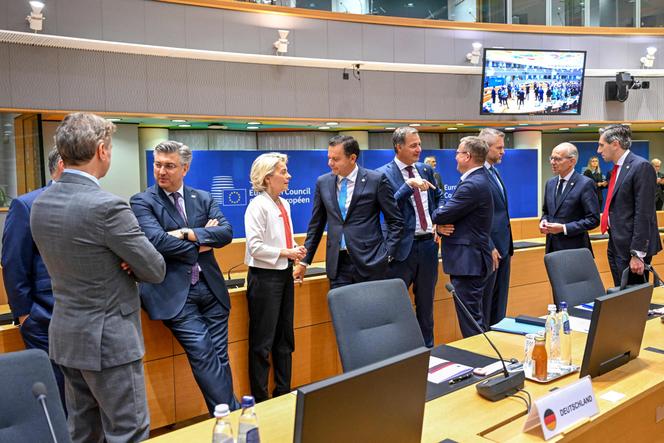


The 27 member states don't want to give the impression that, after the European elections on June 9, they'll be spending weeks squabbling over the next presidents of the European Commission and Council, and the future EU foreign policy chief. Between the war in Ukraine, the rise of the far-right in Europe, the prospect of Donald Trump's return to the White House, the EU's economic decline, global warming and the offensive by China and the US to gain a foothold in the technologies of the future, they can't afford drama.
Europe's heads of state and government prepared meticulously for their meeting in Brussels on Monday, June 17, leaving no room for improvisation. Europe's citizens would not appreciate it if "politicians here in Brussels are talking for weeks on end about who's going to do what role when there are so many pressing issues," said Irish Prime Minister Simon Harris. German Chancellor Olaf Scholz agreed: "It is important for a decision to be made quickly, because we are living in difficult times."
And yet, despite their assurances that they are close, the 27 member states failed to reach a formal agreement on Monday evening. "Things need to simmer a little but we are not far off," revealed French President Emmanuel Macron, who believes there will be an agreement within 10 days, when the leaders meet again in Brussels. In fact, the favorites are well known and supported by both the right-wing European People's Party (EPP) and the Social Democrats (S&D) and Liberals of Renew, who form a coalition in the European Parliament.
Starting with Ursula von der Leyen, the Commission president, who is seeking reappointment. "An excellent candidate," stated Dutch Prime Minister Mark Rutte, who is delighted with the "emerging consensus" on all the forthcoming appointments. As the EPP strengthened its position as the largest political group in the European Parliament on June 9, Angela Merkel's former minister is a legitimate candidate.
Against this backdrop, the S&D, who form the second largest political force in the Strasbourg chamber and held up rather well at the ballot box, are calling for the Council presidency to go to former Portuguese prime minister Antonio Costa. The EPP and S&D are also in the habit of sharing the presidency of the European Parliament, which changes mid-term. Malta's Roberta Metsola, the current holder of the post, could therefore remain in office for a further two and a half years, before stepping down in favor of a Socialist.
You have 62.65% of this article left to read. The rest is for subscribers only.
